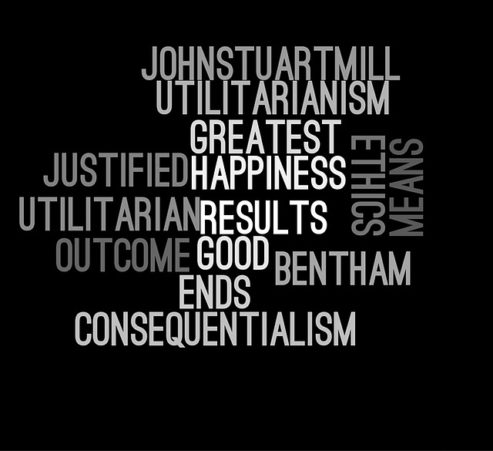David Quinn of the Iona Institute, and Mike Nugent of Atheist Ireland, have been debating the relationship between morality and religion in the last few weeks.
The challenge for atheists is to give a convincing, non-utilitarian answer to the question of why we should treat everyone equally, if we are simply the product of evolution. Atheist Ireland itself has recommended a recent interview with Phil Zuckerman, author of What it Means to be Moral: Why Religion is Not Necessary for Living an Ethical Life.
Zuckerman seems to be an important name in atheist circles, but he doesn’t provide an adequate response to the above question either. Far from it.
In the interview, Zuckerman claims that morality only works in a godless universe. It is God-based that morality that is the problem. He claims that there is no solid empirical evidence that God exists, and that no-one can agree on his commandments, will or desire in any case. So, people tend to project or interpret God’s will to suit their own political or selfish ends.
Moreover, even if we could agree on what God commands, he says, that would destroy morality because it becomes a matter of blind obedience, i.e. we are simply following the orders of a more powerful being.
This is a really naïve account of how ethics relates to religion. Does Zuckerman really believe that religious people maintain that stealing, for instance, is wrong just because God says so? Which decent theist philosopher or theologian has ever defended such a caricature of religious morality?
When asked why human beings are moral, Zuckerman answers that we have developed an instinctual proclivity to be kind because human beings have lived for long time in small groups and being kind and cooperative are important features for survival. But this is still utilitarianism; you do something because it is useful.
As David Quinn has previously pointed out, one could easily justify the opposite of what Zuckerman says, starting from the same premises: human beings have lived for long time in small groups and being aggressive, rather than kind, was important for their survival. Almost everything that is ethically relevant can be justified imagining a prehistorical scenario where it was also advantageous. Cooperation but also aggression are essential features for survival, treating others equally can be useful, but so can subjugating others.
Evolution may explain why we behave in a certain way, but it is does not explain moral obligations. It is descriptive, while ethics is prescriptive.
As the interview proceeds, Zuckerman makes even more absurd claims. He maintains that morality is just a social construct. This belief actually strengthens our case against atheist-based ethics. Our whole point is that atheists have no grounds for believing anything is objectively right or wrong in itself and Zuckerman agrees.
He says: “Moral is an adjective, like beautiful or intelligent. Beautiful is only what enough people say and believe it is, and nothing more. There is no objective criteria … To me, moral has these components (treating people the way we want to be treated, alleviating unwanted suffering, being honest, being kind, altruistic, seeking justice, etc.) but at the end of the day, it is a social construction, it is what enough people say it is.”
Apply this reasoning to, say, genocide. Is genocide wrong only because enough people presently believe it to be so, or is wrong in itself, no matter what people think? By Zuckerman’s logic, the answer is the former.
Surely Atheist Ireland can find someone who can do a better job than Zuckerman at suggesting the atheist basis for morality? So far, they are only confirming our basic argument, namely that they have no real ground for believing we are morally obliged to treat each other equally.
















